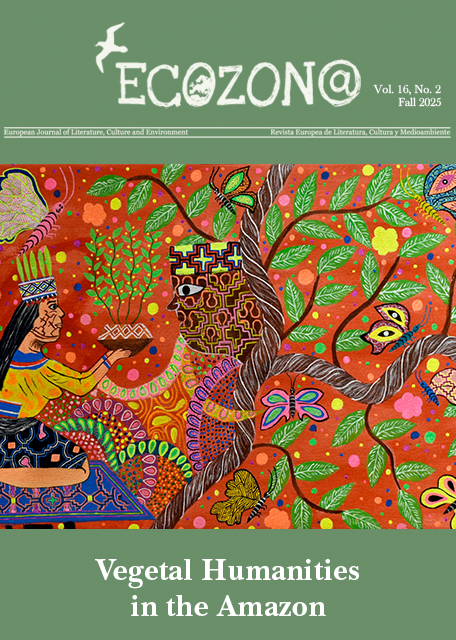Talking about the Weather. Roland Barthes on Climate, Everydayness, the Feeling of Being, and Poetics
DOI:
https://doi.org/10.37536/ECOZONA.2020.11.1.3190Schlagworte:
Roland Barthes, Gilles Deleuze, Roman Jakobson, weather, climate, language, habits, everyday life, body, mood, perception of time, city vs. country, haiku, poeticsAbstract
The paper reads Rolands Barthes’ considerations on weather and climate in his last lecture cycle La Préparation du Roman by contextualizing its brief remarks with his previous discussions on this topic. Barthes develops a phenomenological concept of climate, showing how experiences of place across the seasons shape certain habits. These manifest in expectations, perceptions, daily routines, and language. However, his particular interest is devoted to the question of how an existential experience of weather in its contingency can be regained. Furthermore, he investigates how poetry tries to capture the uniqueness and singularity of respective weather appearances against the patterns and narratives of the climate sedimented in the language system.
Downloads
Downloads
Veröffentlicht
Ausgabe
Rubrik
Lizenz
Authors who publish with this journal agree to the following terms:
a) Authors retain copyright and grant the journal right of first publication with the work simultaneously licensed under a Creative Commons Attribution License that allows others to share the work with an acknowledgement of the work's authorship and initial publication in this journal (CC BY-NC for articles and CC BY-NC-ND for creative work, unless author requests otherwise.
b) Authors are able to enter into separate, additional contractual arrangements for the non-exclusive distribution of the journal's published version of the work (e.g., post it to an institutional repository or publish it in a book), with an acknowledgement of its initial publication in this journal.
c) Authors are permitted and encouraged to post their work online (e.g., in institutional repositories or on their website) prior to and during the submission process, as it can lead to productive exchanges, as well as earlier and greater citation of published work (See The Effect of Open Access).










